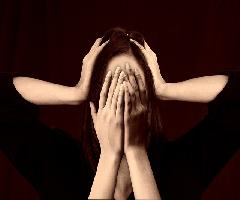The word criticism has been derived from the Greek word which means Judgment. A critic is a person who expresses opinions about the good and bad qualities of books or the works of literature or poetry or the art of an artist or a painter. It can be said that criticism is the play of the mind to observe the merits and the defects in the works of literature, as Victor Hugo points out, “Is the work good or bad is the critic's domain? Thus, the objective of literary criticism is to determine the artistic values, poetic beauty, or the
features being regarded as inadequate existing in the works of literature that in turn can help the writer or poet to improve the skills and ultimately the literary works could in this way attract and delight the readers.While discussing literary criticism, it is interesting to know the qualities of a critic in brief, to begin with, first and foremost,a critic must have a sound commonsense and clear thinking in order to judge or evaluate the works of literature in an efficient way. He is well-read person to exercise judgment on literary works in a way as it should be. He must know the fact that to understand the works of literature,he needs to put himself in the place of a writer so to that he can appraise the work from the viewpoint of a writer as well. In order that the excellence or shortcomings may be examined properly, he does not preform opinion, but interprets literary values on the basis
of his knowledge and experience without an aggressive and unreasonable belief or without any prejudice. And finally, a sound knowledge of human life and nature is a plus point to a critic to pass judgments on the literary works accordingly.As regards the function of literary criticism, considering the saying of Atkins who says the chief functions of literary criticism are, evaluation, interpretation and explanation or elucidation, it may be said that literary criticism involves various aspects to examine the literary work in order to conclude good qualities and the defects in the works of literature which successively can facilitate the writer to achieve the merits while allowing him to overcome the flaws if any.
It must be borne in mind that the ultimate objective of any work of literature or art is to attract the readers or the viewers or observers with excellence while delighting them aesthetically.It is thus by means of criticism to determine whether an artist or a writer has been able to create distinctive values in his work or not. At this stage, it would be appropriate to say that criticism is not just fault-finding but helping the writers or poets or artists in achieving the excellence in their works that the ultimate objective which is wanted must be attained. At this point, the saying of T.S. Eliot is worth mentioning, “The end of criticism is the elucidation of works of art and the correction of taste.”








